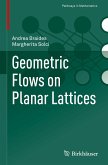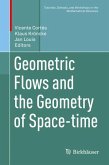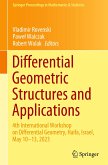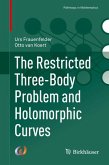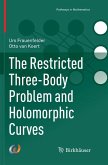This book introduces the reader to important concepts in modern applied analysis, such as homogenization, gradient flows on metric spaces, geometric evolution, Gamma-convergence tools, applications of geometric measure theory, properties of interfacial energies, etc. This is done by tackling a prototypical problem of interfacial evolution in heterogeneous media, where these concepts are introduced and elaborated in a natural and constructive way. At the same time, the analysis introduces open issues of a general and fundamental nature, at the core of important applications. The focus on two-dimensional lattices as a prototype of heterogeneous media allows visual descriptions of concepts and methods through a large amount of illustrations.
Bitte wählen Sie Ihr Anliegen aus.
Rechnungen
Retourenschein anfordern
Bestellstatus
Storno


